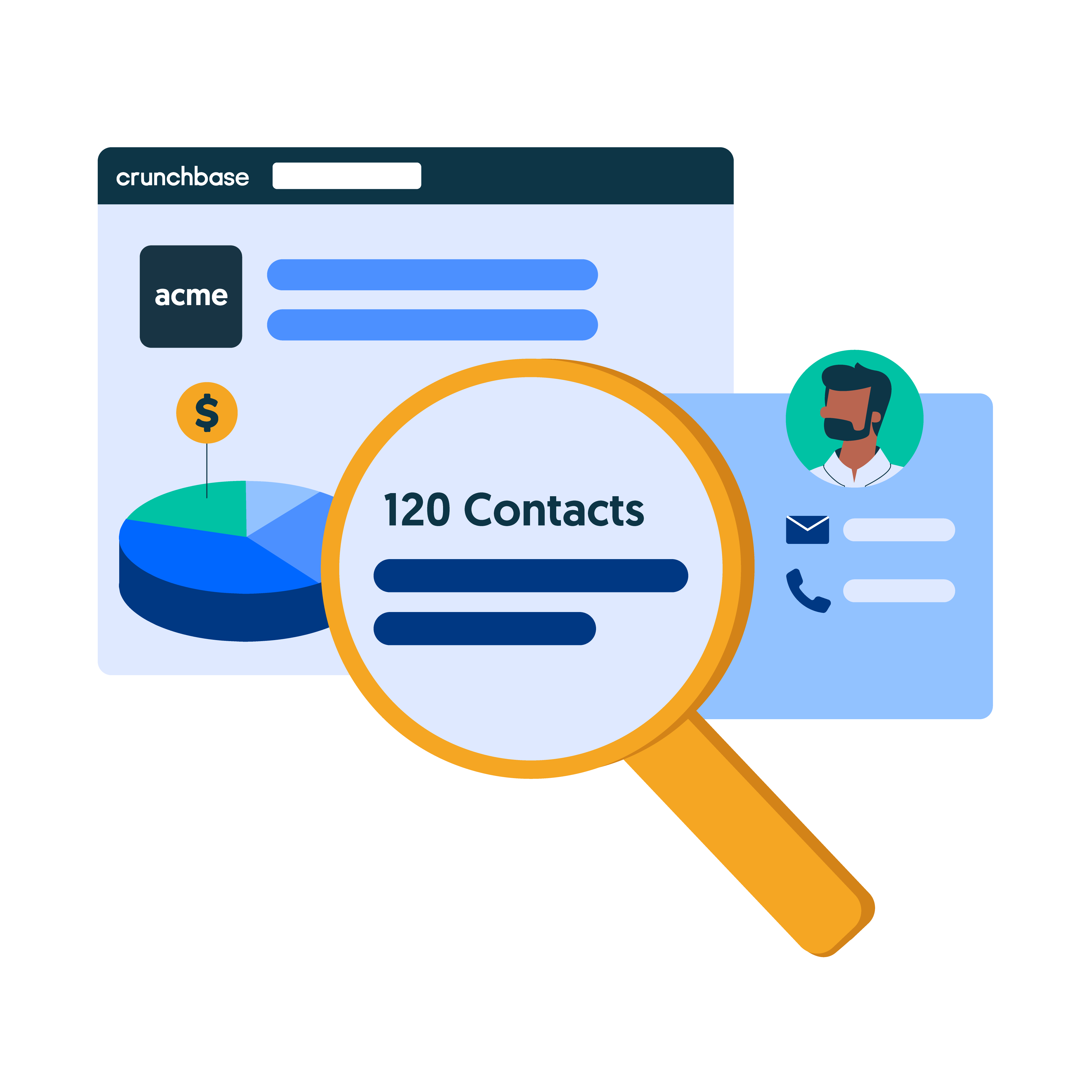This article is part of the Crunchbase Community Contributor Series. The author is an expert in their field and we are honored to feature and promote their contribution on the Crunchbase blog.
Please note that the author is not employed by Crunchbase and the opinions expressed in this article do not necessarily reflect official views or opinions of Crunchbase, Inc.
Your sales team drives your company’s revenue with its lead generation efforts. However, sales teams tend to have high turnover rates (34% on average). If your compensation plan doesn’t motivate team members to hit their numbers and stay with your organization, you won’t see business success.
A sales compensation plan is more than just commissions—it’s the total package. It should include a base salary, commissions, benefits, bonuses, contest perks and nonfinancial rewards (such as remote work opportunities, paid time off, etc.). Most importantly, the plan has to be simple enough for representatives to calculate how much they will make by closing sales.
If your sales compensation plan is too complex or lackluster, it won’t drive the sales activity needed to accomplish your goals. But with the right plan, you’ll be able to better incentivize your sales team and forecast budgets based on consistent performance.
4 things to include in a sales compensation plan
When creating a sales compensation plan, you need to work backward by determining the cost of a sale and the maximum payout you can afford to give a sales representative. Once you determine that, you can start exploring how to reward team members using these four elements:
1. Salary
Your sales team should be able to earn a living without depending entirely on how many deals get closed. After all, it takes an average of 18 calls to connect with a buyer. Your salespeople need to cover their expenses even if they’re experiencing slow periods.
Base salaries are important because they give team members a sense of security. However, you should be looking for sales reps who see the big picture and understand that on-track earnings are much more lucrative than a high base salary.
2. Commissions
You also must offer commissions on top of employees’ salaries. If a sales team’s compensation is solely based on commissions, it can lead to pushy habits. But if you’re offering position- and performance-based compensation, you’ll close more deals. (Research found that 57% of people would buy if salespeople were less pushy during follow-ups.)
Develop a commission structure where each representative’s pay increases with their results. Many companies choose to pay flat rates based on what was sold or pick overly complex structures, but these strategies won’t prompt the best results.
3. Bonuses
Although they can probably set themselves up for the future easily, every person in your sales staff should have a guaranteed future.
Is your compensation plan capped? If so, you’re discouraging your sales team from maximizing its potential. If there’s no reason to overachieve, people won’t, which might be why only 24.3% of salespeople exceeded their quotas in 2021. Plus, many salespeople stick to their habits once they figure out what works. You need great bonuses to encourage great sales habits.
One way to generate excitement and drive great habits is to host sales contests for bonuses every month, quarter or year. You’d be surprised at your sellers’ lead generation efforts when they’re appropriately incentivized.
4. Benefits
The Great Resignation is showing employers the importance of worker perks. If you really want to combat turnover, you need a comprehensive employee benefits plan that includes enticing benefits.
Consider providing employees with 401(k) plans, stock options, health benefits, paid time off, etc. By meeting employees’ expectations for benefits, you can keep salespeople happy. Even offering something as simple as flexible work hours can help you cater to their needs and boost business success.
3 compensation strategies to consider
Creating a competitive sales compensation plan might sound like a lot to manage, and it can admittedly get complicated. But now that you understand what elements to include, you can focus on more specific development and implementation strategies. These three tips can help you get started:
1. Consider the ramp-up period for new representatives.
When coming up with a sales compensation plan, it’s critical to consider the ramp-up period for new reps who are still learning the ropes. You’ll lose good sales team members to frustration and disappointment if you ramp them up too quickly. Your staff has to have enough time to build a pipeline and learn how to sell your products or services.
The key to driving ultimate sales results is a clear plan. New and existing staff should understand what it takes to get to each “level” of the commission or reward structure. Once new team members understand who gets what, they’ll be driven to earn their way up to the highest level.
2. Establish a reward your team can compete for.
Having a reward at the end of the year is also a great way to generate competition among the sales staff. The only caveat is to make it attainable—just not too attainable. You want top-performing representatives to reach the reward, but it shouldn’t be so easy that everyone gets it. Don’t take away the gamification aspect.
At Abstrakt Marketing Group, we created a President’s Quota Club, a motivating incentive that allows our team members a chance to win an all-inclusive trip. It costs the company less to offer this reward than it does to lose out on missed quotas.
3. Keep things simple and exciting.
It’s worth repeating that your sales compensation plan needs to be simple. You don’t want people spending so much time working out the rules of the game that they’re not paying attention to their actual work.
At the same time, your compensation plan should take representatives’ minds off their sales goals. In our situation, team members start over each month at zero in revenue and have a large quota to hit. This can be daunting if all they’re thinking about is how much they have to sell. By developing a competitive compensation plan, we help them focus on leading indicators of success (i.e., dials, appointments, pitches and follow-up calls), not a looming number.
With the proper sales compensation plan in place, you’ll increase the amount of new business you bring in, incentivize staff to stay longer and reap the benefits of lasting business success.
John Schwepker is the vice president of sales at Abstrakt Marketing Group, a business growth company that provides lead generation solutions.






